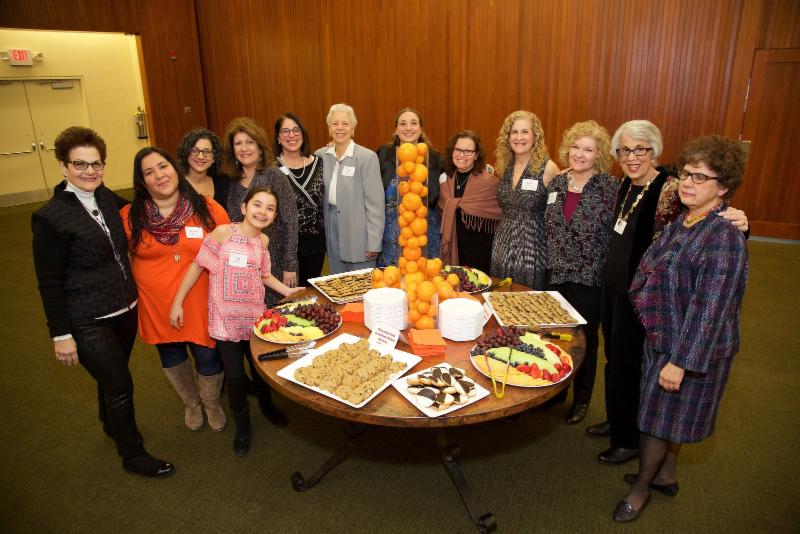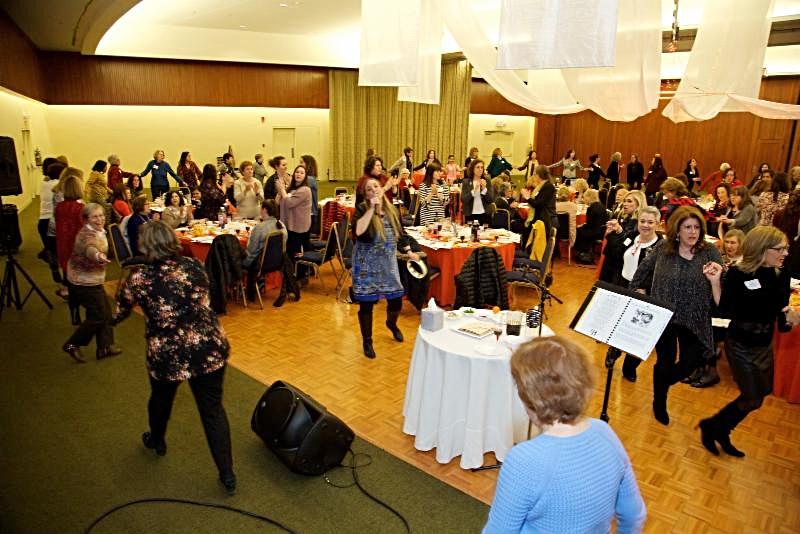Join us for services on Friday night and Shabbat morning - and a reminder that Shabbat-in-the-Round will not be held this week. We do have our B'nai Mitzvah Club at our regular service - and there's nothing "regular" about this Shabbat. It's Shabbat Ha-hodesh, the Shabbat of "THE Month" - and it's Rosh Hodesh for Nisan. A rarity, we will be reading from three (count 'em, three) Torahs this Shabbat morning.
Marching for Our Lives - On Shabbat
This past Wednesday, students across the country stepped from their desks and out the door for a few minutes to mark the one month anniversary of the horrific shooting in Florida. TBE teen Alyssa Goldberg put it best in the Stamford Advocate: "We are saying it is enough. We will no longer quietly wait for the next tragedy to strike to make a change. We must start to be proactive instead of reactive to ensure that an event like this never occurs again."
I'll be joining teens and adults on the "March for Our Lives" on March 24. I'm not yet positive where I will be marching - I want to be with as many of our teens as possible. This is not a decision I take lightly, for by traveling to get there, I'll be violating traditional Shabbat restrictions. But in doing so, I'll be fulfilling the greatest of Jewish religious duties - one that supersedes even the Sabbath itself.
Yes, this march is so important that I am going to blatantly disrupt God's holy Sabbath to get there; but if the ancient rabbinic sages are to be believed, that's precisely what God wants me to do.
The obligation to save lives overrules virtually all other Jewish laws, and this march, if successful, will surely save lives. I can think of no better way to dramatize both the historic magnitude and the religious significance of this march than to hop on the "Shab-bus".
Although it is not my normal practice to travel on Shabbat, I am not dogmatic about it and do make exceptions; Conservative Judaism does too - read more about the issue here.
Countless lives are hanging in the balance right now. If this massive nationwide demonstration leads to real change, who knows how many lives will be spared, the next time a deranged individual is denied that AR-15 because of strengthened, common sense gun laws. The last time I marched with the masses for stricter gun legislation, in downtown Hartford two months after Sandy Hook, the result was dramatic. The Connecticut state government proceeded to ban more than 150 assault-style gun models, along with magazines having a capacity greater than ten rounds. The state also implemented a universal background check system and required a permit to buy guns and ammunition. As a result, gun homicides in this state were cut in half.
That rally did not take place on Shabbat, so it was a no brainer for me to go. This one is different.
The religious obligation in question is called, in Hebrew, Pikuach Nefesh and is derived from Leviticus 18:5, which states, "You shall keep My laws and rules, by the pursuit of which people shall live; I am the Lord." Other biblical verses reinforce the message that laws are intended to sanctify and preserve life, not to cause undue risk of death.
Judaism has always promoted a culture of life (it bears noting that in Jewish sources, human life is defined as beginning at or about the time of birth). The Talmud states that to save a single life is equivalent to saving the world. The twenty first graders at Sandy Hook, seventeen students and teachers in Parkland, along with the slain of Las Vegas, Sutherland Springs, Orlando and so many other places, add up to tens of thousands of victims of gun violence per year - tens of thousands of worlds destroyed. That is what has propelled my act of conscientious objection toward the notion of Sabbath rest. If they are not resting in peace, how can allow myself to rest at all?
Pikuach Nefesh can be applied in many situations, but most often it is discussed regarding Shabbat. In the second century BCE, Seleucid armies adopted the strategy of attacking Jewish renegades on Shabbat. The Jews offered little resistance and were slaughtered. In 1 Maccabees, the Hasmonean patriarch Mattathias rejected that blind piety, stating, "If anyone comes against us on the Sabbath day, we shall fight against him and not all die as our brothers did in their hiding places."
The Talmudic sages taught that one who is vigilant in saving a life on Shabbat is praiseworthy. The Talmud presents several scenarios involving permissible Sabbath violations, including rescuing a child from a pit or saving someone drowning in the sea. The rabbis applied the principles of Pikuach Nefesh both to saving the lives of Jews and gentiles and also made it clear that the risk of death did not need to be certain or immediate.
The most famous case in modern times - and the one most analogous to March 24 - occurred during a cholera epidemic in 1848, when the great Lithuanian Rabbi Israel Salanter stood before his community on Yom Kippur and encouraged them to end their fast prematurely. He dramatized that plea by eating and drinking in front of them.
In an account written eight decades later, Salanter is said to have stated, "There are times when one must turn aside from the Law, if by doing so a whole community may be saved. With the consent of the All-Present and with the consent of this congregation, we give leave to eat and drink on the Day of Atonement."
Salanter's snack did not directly save any lives, and in fact, contemporary opponents noted that many thousands of Jews in those same lands who disregarded his gesture survived. But it is conceivable that some who were in a weakened state would have become sick without their mid-afternoon energy bar, or whatever Salanter cooked up for them (presumably not a ham sandwich). The mere chance that his life-affirming act could have limited the spread of that deadly disease was sufficient to warrant his gesture.
My boarding that bus or car will likely not save any lives directly. But by joining the voices of Parkland to the Voice of Sinai, I can elevate the conversation on guns in our country, helping legislators and voters - and the teens themselves - to appreciate the urgency of now. Meanwhile, I'll refrain from spending money or using my phone, and I'll chant a psalm or two, and my rolling Sabbath may become, for me and others, one of the most meaningful Sabbaths we've ever experienced.
This week, I was talking about the March with a veteran of the '60s Vietnam protests, who shared the observation that when she was in college and she and her classmates marched against the war, it saddened her that no adults marched with them. Given what we now know about how successive administrations systematically lied to the American people about Vietnam over the course of decades, leading to the senseless deaths of over 50,000 American soldiers and many more innocent civilians, one wonders if things would have turned out differently if more adults had turned against the war sooner, rather than just shrugging and saying, "Kids these days..." Adults should have joined the march then. Given the terror that students now live with every day - not that different from that fear felt by students of draft age in the '60s - I will not let them march alone this time. Let me know if you would like to join me. I'll let everyone know by mid week where Mara and I will be going.
At Selma, Rabbi Abraham Joshua Heschel, who marched alongside Martin Luther King, remarked that he felt like he was praying with his feet. On March 24, I will be praying with my feet too. And while I walk, I'll be praying that, in some small way, I'll be saving lives, and thereby, just maybe, helping to save the world.




No comments:
Post a Comment